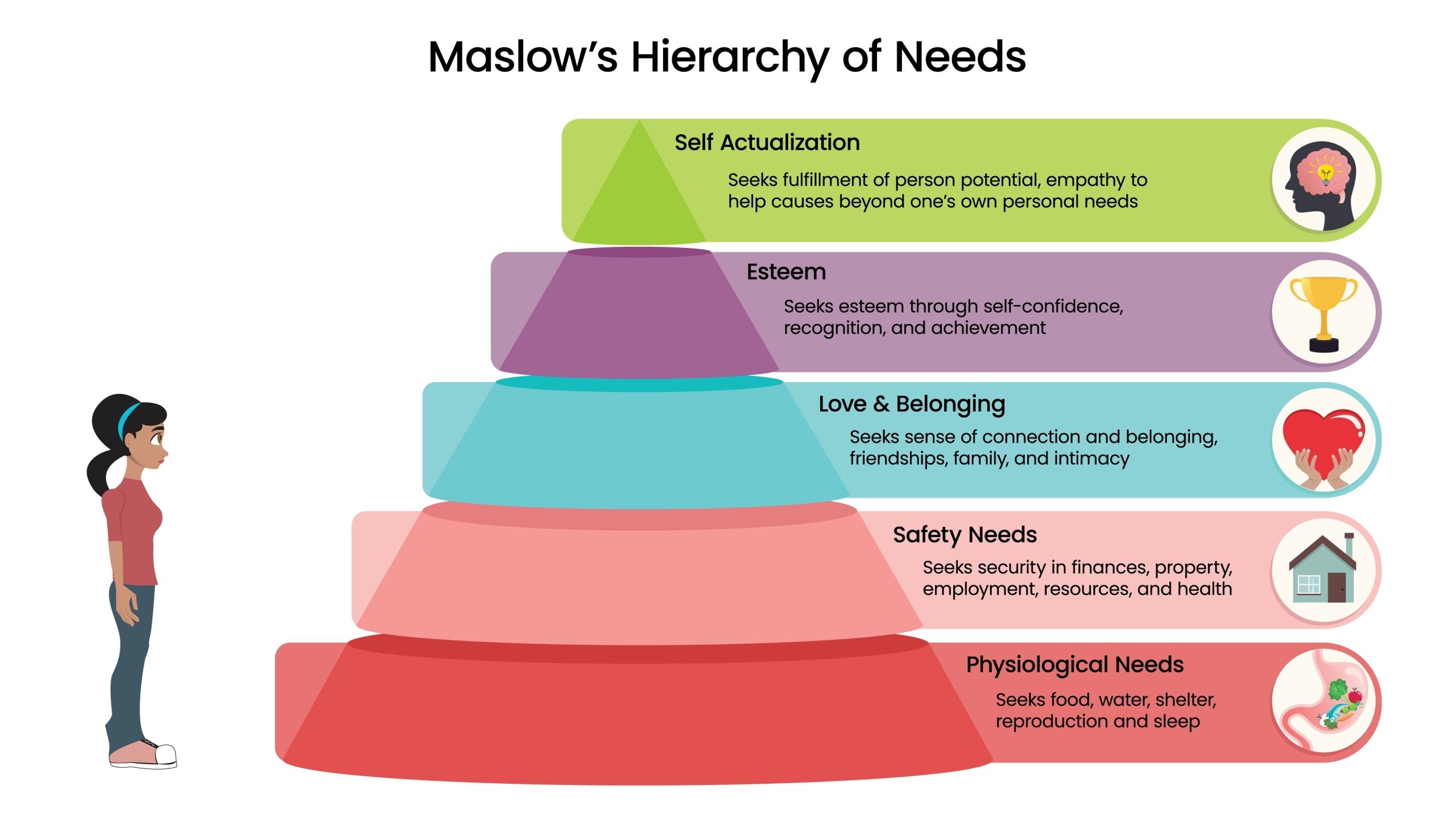The role of positive recognition extends far beyond handing our tokens of achievement – it triggers a psychological response that creates intrinsic motivation, fostering self-esteem, and enriching the overall learning experience. In this article, we'll explore the psychological dimensions of recognition, from its biochemical roots to its direct impact on learning and classroom management.
The Psychological Underpinnings of Recognition

The Basic Human Need for Recognition
Let’s start with Abraham Maslow's ‘Hierarchy of Needs,’ focusing on esteem, revolving around self-respect, confidence, and recognition. According to Maslow, lacking these needs can significantly affect our journey toward self-fulfilment and educational achievement.
Reward vs Recognition in Education: A Crucial Difference
Recognition and reward, although frequently used together, serve different psychological functions. Rewards are extrinsic and can provide immediate, albeit temporary, satisfaction. They don't necessarily encourage intrinsic motivation or emotional investment in a task. Recognition, on the other hand, is intrinsic and creates a deeper emotional connection with the activity, fostering long-term engagement. Studies like Kohn’s 1999 work have shown that extrinsic rewards can reduce intrinsic motivation over time, leading to poorer performance and engagement. We discuss this in more depth in Extrinsic vs. Intrinsic Motivation.
The Role of Dopamine
Dopamine is the chemical that mediates pleasure in the brain. Our levels of it rise when we experience recognition, serving as biochemical proof of its importance. A study published in the Journal of Neuroscience (Schultz, 2015) has shown that dopamine increases feelings of pleasure and, therefore, positively affects attention and memory. This implies that consistently using recognition in the classroom leads to better thought retention and focus among students.
The Direct Impact of Recognition in Education

Enhanced Motivation and Engagement
Understanding recognition as more than just a 'pat on the back' allows us to look at its capacity to enrich educational experiences. For instance, recognition boosts intrinsic motivation—those internal drives that fuel a genuine interest in learning. A study by Ryan and Deci demonstrates that students who receive consistent recognition show heightened levels of engagement, even when tackling complex or challenging subjects.
Improved Academic Performance
Research also shows that recognition in education doesn't just make students feel better, it genuinely contributes to their academic success and overall achievements and outcomes. Case studies in educational psychology further confirm that schools implementing recognition-based pedagogical methods witness a rise in student grades and overall performance (Dweck, 2000).
Promotion of Positive Behaviour
In terms of classroom dynamics, recognition serves a dual purpose: it encourages academic excellence but also creates a more favourable atmosphere. According to best practice recommendations from the Department for Education, consistent and meaningful recognition of students is instrumental in reducing classroom disruption and enhancing cooperative behaviour.

Implementing Recognition in Educational Settings
Practical Steps for Teachers
While the theory behind recognition is interesting, its the practical implementation that really matters. Teachers can use recognition in the classroom in a variety of ways, including:
- Spotlight achievements: During class time and/or staff meetings, take moments to spotlight individual or group achievements, academic or otherwise.
- Provide written feedback: Use positive written comments on assignments to recognise effort and excellence.
- Student-of-the-month boards: Display great work or recognise character strengths on bulletin boards to celebrate achievements publicly.
Institutional Approaches
Creating a culture of recognition isn’t the sole responsibility of teachers; it needs school-wide backing. Schools can:
- Develop policies: Create guidelines promoting recognition across various parts of school life.
- Run training programmes: Offer training for staff on how to integrate recognition into their teaching styles effectively.
- Host recognition awards/events: Organise quarterly or annual events to celebrate student and staff achievements.
Parental Involvement
Parental involvement can be key in building a culture of recognition. Parents should be encouraged to:
- Offer their own recognition at home: Acknowledge their child’s school achievements at home to reinforce the value of recognition.
- Stay involved: Regularly communicate with teachers to keep the recognition loop going!
- Volunteer for school events: Participate in school-based recognition events to show collective family support.
In Summary
All the evidence points towards the important role of recognition in shaping high-quality educational experiences and outcomes. From fuelling intrinsic motivation to fostering a more respectful classroom environment, the different aspects of recognition are deeply rooted in the psychological sciences and can strongly influence a student’s academic achievements and success.
Recommended Reading & Resources
- Mindset by Carol Dweck - An insight into the psychological mechanisms that fuel our behaviour.
- Drive by Daniel H. Pink - Explores the psychology behind motivation, including the role of recognition.
- Self-Determination Theory by Deci & Ryan - Essential reading for understanding intrinsic and extrinsic motivation.
- The Talent Code by Daniel Coyle - Investigates the impact of recognition on skill development.
- The Art of Possibility by Rosamund Stone Zander & Benjamin Zander - Discusses transforming challenges into opportunities.
- The Element by Ken Robinson - Looks at how individuals find their passions, along with the role of schools in facilitating or inhibiting that discovery.
- Educated by Tara Westover - Although a memoir, it starkly contrasts the importance of recognition in educational settings.
- Positive Discipline by Jane Nelsen - Provides actionable strategies for constructive recognition.
- Punished by Rewards by Alfie Kohn - Discusses the pitfalls of extrinsic rewards compared to intrinsic recognition.
- How We Learn by Benedict Carey - Investigates the learning process, including recognition's role.

